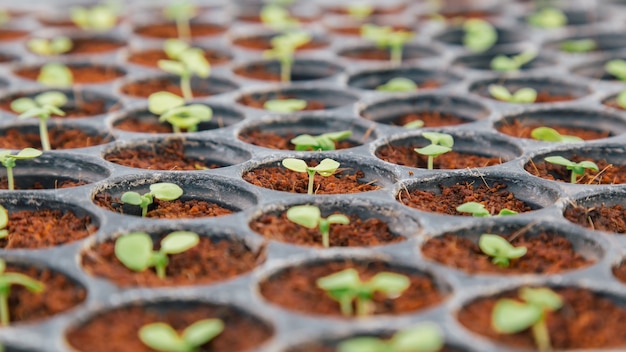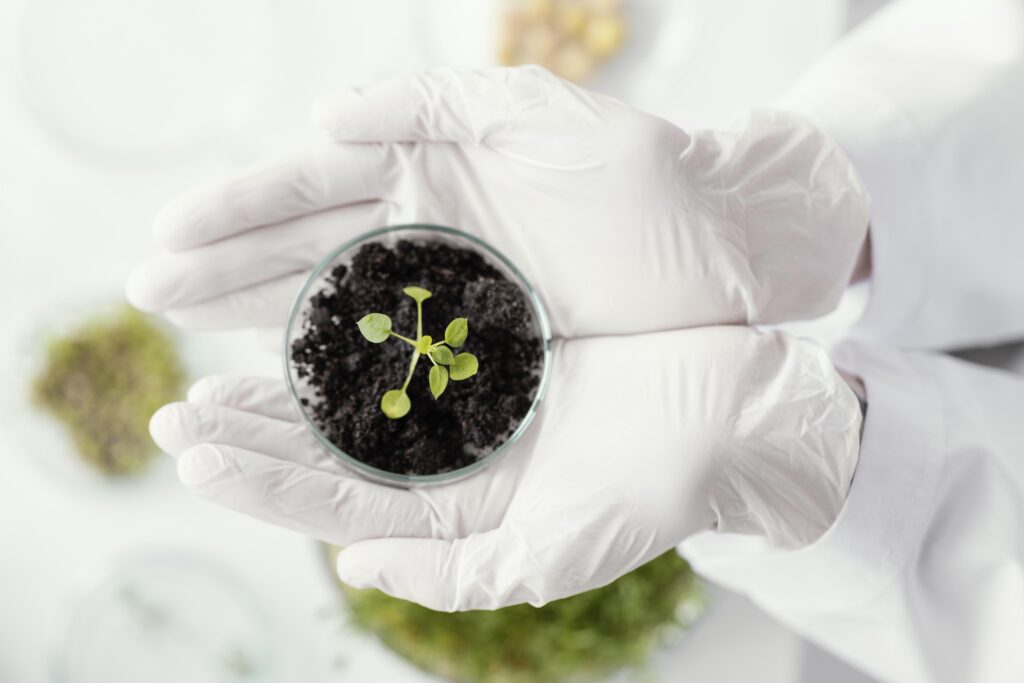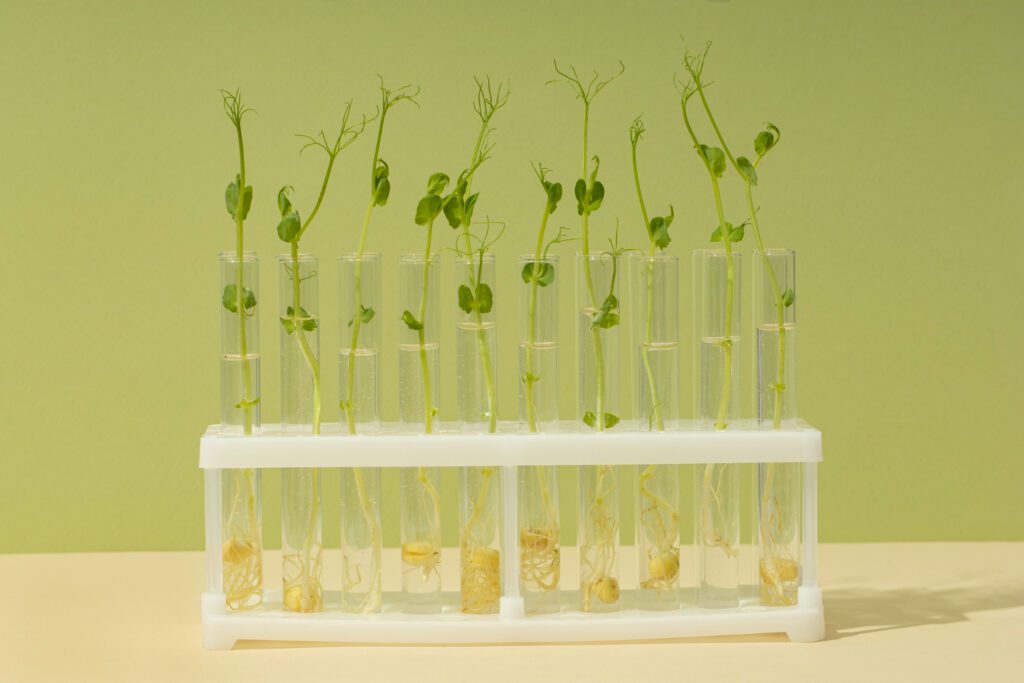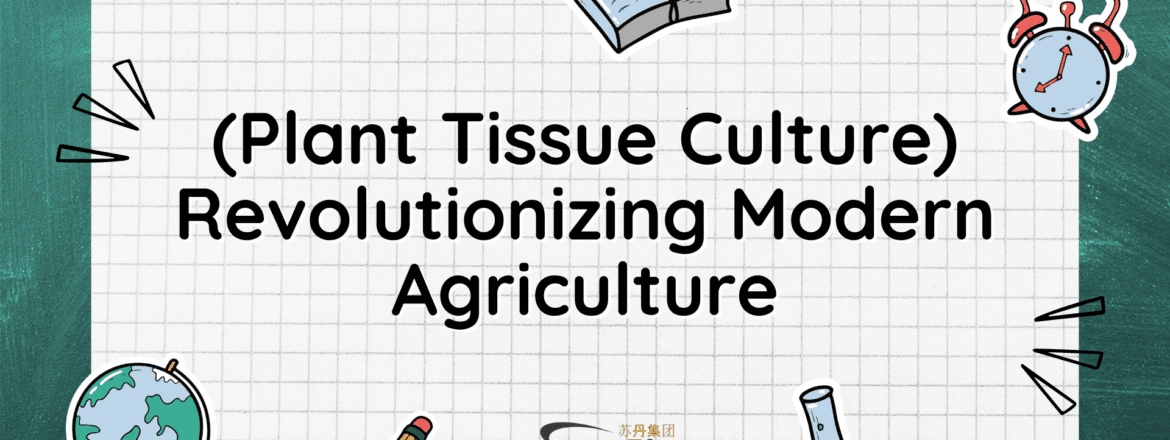Plant Tissue Culture: Revolutionizing Modern Agriculture
Outline
- Introduction to Plant Tissue Culture
- What is Plant Tissue Culture?
- Brief History of Plant Tissue Culture
- Importance in Modern Science
- Principles of Plant Tissue Culture
- Basic Concept
- Sterilization Techniques
- Media Preparation
- Steps in Plant Tissue Culture
- Selection of Explant
- Sterilization of Explant
- Media Inoculation
- Incubation and Growth
- Subculturing
- Hardening and Acclimatization
- Types of Plant Tissue Culture
- Callus Culture
- Organ Culture
- Cell Suspension Culture
- Protoplast Culture
- Embryo Culture
- Major Benefits of Plant Tissue Culture
- Mass Propagation
- Disease-Free Plants
- Genetic Modification
- Conservation of Rare Species
- Production of Secondary Metabolites
- Applications in Agriculture
- Crop Improvement
- Disease Resistance
- Enhanced Yield
- Faster Breeding Cycles
- Challenges in Plant Tissue Culture
- Contamination
- Somaclonal Variation
- High Initial Costs
- Future Prospects
- Advances in Genetic Engineering
- Integration with Biotechnology
- Potential for Sustainable Agriculture
- Conclusion
- FAQs
- What is plant tissue culture?
- How long does plant tissue culture take?
- Is plant tissue culture expensive?
- What plants can be grown using tissue culture?
- Can plant tissue culture be done at home?
Introduction to Plant Tissue Culture
What is Plant Tissue Culture?
Plant tissue culture is a technique used to grow plants from small segments, tissues, or cells in a controlled environment. This method leverages sterile conditions and nutrient-rich media to foster the growth and development of plant tissues. It’s like giving plants a VIP treatment in a spa, where they get all they need to grow healthily and robustly.

Brief History of Plant Tissue Culture
The concept of plant tissue culture dates back to the early 20th century. In 1902, the German botanist Gottlieb Haberlandt first proposed the idea of cultivating plant cells outside the parent organism. However, it wasn’t until the 1930s and 1940s that significant advancements were made, thanks to the discovery of plant growth hormones and improved sterilization techniques.
Importance in Modern Science
Plant tissue culture has become indispensable in modern science, particularly in the fields of botany, genetics, and agriculture. It allows for the cloning of plants, the preservation of rare species, and the rapid propagation of crops. Essentially, it’s a cornerstone technique for plant biotechnologists aiming to enhance food security and biodiversity.
Principles of Plant Tissue Culture
Basic Concept
At its core, plant tissue culture involves the aseptic (sterile) cultivation of plant cells, tissues, or organs on a nutrient medium under controlled environmental conditions. The goal is to regenerate whole plants from the cultured tissues.
Sterilization Techniques
Sterilization is crucial in plant tissue culture to prevent contamination. This involves sterilizing the explants (plant material), tools, and culture media using methods such as autoclaving, surface sterilization with chemicals (like bleach or alcohol), and using laminar flow cabinets to maintain a sterile work environment.
Media Preparation
The culture media must contain essential nutrients, including vitamins, minerals, and plant growth regulators like auxins and cytokinins. The composition of the media can be tailored to the specific needs of different plant species and the particular stage of tissue development.
Steps in Plant Tissue Culture
Selection of Explant
The process begins with selecting the explant, which can be any part of the plant such as leaves, stems, roots, or even cells. The choice of explant depends on the plant species and the desired outcome.
Sterilization of Explant
The selected explant undergoes a rigorous sterilization process to eliminate any microorganisms that could contaminate the culture. This typically involves soaking in a sterilizing agent followed by several rinses in sterile water.
Media Inoculation
The sterilized explant is then placed on a nutrient-rich culture medium. This step requires precision to ensure that the explant is positioned correctly and that the media supports its growth.
Incubation and Growth
The inoculated explants are incubated under controlled conditions of temperature, light, and humidity. During this period, the tissues grow and develop, forming callus (a mass of undifferentiated cells) or directly regenerating into new plants.
Subculturing
As the tissue grows, it may need to be transferred to fresh media to maintain optimal growth conditions. This process, known as subculturing, helps in providing the necessary nutrients and space for continued development.
Hardening and Acclimatization
Once the plantlets are sufficiently developed, they are gradually acclimatized to external conditions. This involves transferring them to soil and gradually exposing them to the natural environment, a process known as hardening.

Types of Plant Tissue Culture
Callus Culture
Callus culture involves the growth of unorganized, undifferentiated cell masses. It is often used for genetic modification and studies related to plant metabolism.
Organ Culture
This type involves culturing specific plant organs like roots, stems, or leaves to study their development and to propagate plants.
Cell Suspension Culture
In this method, plant cells are grown in a liquid medium, allowing for large-scale production of cells and secondary metabolites.
Protoplast Culture
Protoplast culture involves the use of plant cells without cell walls. It is particularly useful in genetic engineering and hybridization studies.
Embryo Culture
Embryo culture is used to rescue embryos from seeds that might not germinate normally, facilitating the propagation of rare or endangered species.
Major Benefits of Plant Tissue Culture
Mass Propagation
One of the standout benefits of plant tissue culture is its ability to produce a large number of plants in a relatively short period. This is particularly advantageous for commercial growers looking to scale up production.
Disease-Free Plants
Plants grown through tissue culture are typically free from pathogens, ensuring healthier and more robust growth. This is akin to giving plants a clean slate to thrive upon.
Genetic Modification
Tissue culture provides an efficient means to introduce and propagate genetically modified plants, enabling scientists to create crops with desirable traits such as pest resistance or improved nutritional content.
Conservation of Rare Species
By propagating plants from small tissue samples, tissue culture can help conserve rare and endangered species. This method ensures that even a small sample can be used to regenerate whole plants, preserving genetic diversity.
Production of Secondary Metabolites
Secondary metabolites are compounds produced by plants that have significant medicinal and industrial applications. Tissue culture allows for the controlled production of these valuable compounds.
Applications in Agriculture
Crop Improvement
Tissue culture is instrumental in developing improved crop varieties with enhanced traits such as higher yield, better nutritional quality, and resistance to pests and diseases.
Disease Resistance
By cultivating disease-free plants and introducing resistant genes, tissue culture helps in developing crops that are more resilient to various pathogens.
Enhanced Yield
Through the rapid multiplication of superior plant varieties, tissue culture contributes to increased agricultural productivity, which is crucial for feeding the growing global population.
Faster Breeding Cycles
Traditional breeding methods can be time-consuming. Tissue culture accelerates the breeding process, enabling the faster development of new plant varieties.
Challenges in Plant Tissue Culture
Contamination
Despite stringent sterilization protocols, contamination remains a significant challenge in tissue culture. Even a single contaminant can ruin an entire batch of cultures.
Somaclonal Variation
Genetic variations can occur during the tissue culture process, leading to somaclonal variation. While this can sometimes result in desirable traits, it often leads to unwanted variations.
High Initial Costs
Setting up a tissue culture lab requires significant investment in equipment and training, which can be a barrier for some institutions and small-scale farmers.
Future Prospects

Advances in Genetic Engineering
Ongoing advancements in genetic engineering promise to further enhance the capabilities of plant tissue culture, enabling the development of crops with even more beneficial traits.
Integration with Biotechnology
The integration of tissue culture with other biotechnological approaches, such as CRISPR and genomic selection, is likely to revolutionize plant breeding and crop production.
Potential for Sustainable Agriculture
By enabling the rapid propagation of high-yielding, disease-resistant crops, plant tissue culture holds the potential to contribute significantly to sustainable agricultural practices, ensuring food security for future generations.
Conclusion
Plant tissue culture is a powerful tool that has transformed plant science and agriculture. From enabling mass propagation to conserving rare species and enhancing crop yields, its applications are vast and impactful. As we look to the future, the integration of tissue culture with cutting-edge biotechnologies will further enhance its potential, paving the way for sustainable and resilient agricultural systems.
FAQs
What is plant tissue culture?
Plant tissue culture is a technique for growing plants from small tissue samples in a sterile, controlled environment.
How long does plant tissue culture take?
The duration varies depending on the plant species and the specific culture method, but it typically ranges from a few weeks to several months.
Is plant tissue culture expensive?
The initial setup for a tissue culture lab can be costly, but the long-term benefits, such as rapid propagation and disease-free plants, often outweigh the initial investment.
What plants can be grown using tissue culture?
A wide range of plants can be grown using tissue culture, including ornamental plants, crops, and even trees. It is particularly useful for species that are difficult to propagate through traditional methods.
Can plant tissue culture be done at home?
While it is possible to perform basic tissue culture at home with the right equipment and knowledge, it typically requires sterile conditions and precise techniques that are best managed in a professional lab.
About Sultan Group: Your Trusted Partner in Plant Tissue Culture and Beyond
At Sultan Group, we are dedicated to advancing the field of plant tissue culture and supporting businesses with our comprehensive range of services. With our expertise in molecular biology, biotechnology equipment, and efficient logistics, we ensure that your plant tissue culture projects are successful from start to finish.
Our Services:
Molecular Biology and Biotechnology Equipment: We provide top-quality equipment essential for plant tissue culture, including growth chambers, autoclaves, and laminar flow hoods.
Logistic Shipping and Custom Clearance: Our efficient logistics and custom clearance services ensure that your supplies reach you promptly and hassle-free.
Sourcing of Products Across Different Domains: We source high-quality products from around the world, making sure you have access to the best materials for your plant tissue culture projects.
Seeds Products: In addition to equipment, we offer a wide variety of high-quality seeds, ensuring you have the best starting materials for your research and cultivation needs.
With operations in over 108 countries, Sultan Group is your reliable partner in making sourcing easy and managing your business needs, allowing you to concentrate on your core operations.
Discover more about how we can support your plant tissue culture endeavors and other biotechnology projects by visiting our website www.sultangroup.org.
Join us in advancing plant tissue culture and achieving your scientific goals with confidence and excellence.
Sultan Group: Innovating Science, Simplifying Logistics, and Empowering Research.


